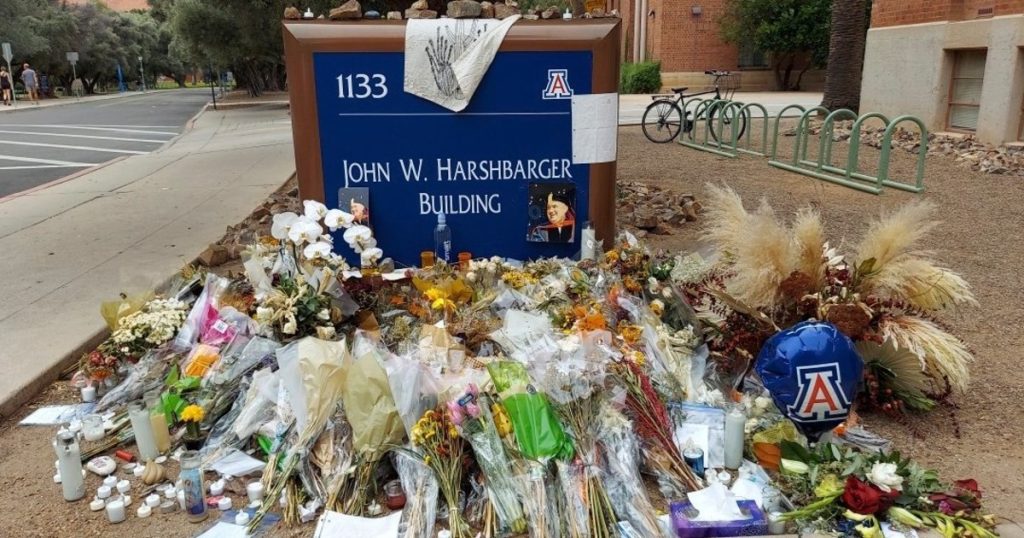Closing arguments are set to take place in the trial of Murad Dervish, a former University of Arizona graduate student accused of killing professor Thomas Meixner on campus two years ago. Dervish faces seven felony charges, including first-degree murder. His defense attorney argues that the killing was not premeditated, and that Dervish should be found guilty except insane to second-degree murder. However, prosecutors claim that Dervish planned the shooting and knew what he was doing. Meixner, the victim, was the head of the Department of Hydrology and Atmospheric Sciences at the university and was well-known for his expertise on desert water issues. Dervish was a student in the department, but was banned from the school and later expelled due to ongoing issues with professors.
According to a criminal complaint, Dervish had been barred from the school and a flyer with his photograph had been circulated to university staff with instructions to call 911 if he was seen on campus. Dervish had been the subject of multiple reports of harassment and threats towards staff members at the John W. Harshbarger Building, which housed the hydrology department. Witnesses reported that Dervish arrived at Meixner’s office wearing a surgical mask and baseball cap as a disguise, and shot the professor multiple times. He was later arrested by Arizona state troopers after being stopped on a highway more than 120 miles northwest of Tucson. A loaded 9mm handgun was found in his vehicle, with ammunition that matched the shell casings found at the scene of the shooting.
The defense’s argument of Dervish’s mental state at the time of the killing will play a key role in the trial’s outcome. Masursky asserts that Dervish was not in a premeditated state when he committed the act, and should be found guilty except insane to second-degree murder. Prosecutors, on the other hand, maintain that Dervish had planned the shooting and was fully aware of his actions. The outcome of the trial will likely hinge on whether the jury believes Dervish was in control of his mental faculties at the time of the killing. The tragic incident has brought attention to issues of mental health and safety on college campuses, as well as the importance of addressing and preventing potential threats before they escalate to violence.
The impact of Meixner’s death on the university community and his loved ones cannot be overstated. As a respected professor and expert in his field, Meixner had a significant influence on the students and faculty at the Department of Hydrology and Atmospheric Sciences. His loss has left a void that will be difficult to fill, and the trial has brought closure to some while reopening wounds for others. The trial serves as a reminder of the need for heightened security measures and proactive interventions to prevent similar tragedies from occurring in the future. The outcome of the trial will have far-reaching implications for campus safety and mental health support systems, as well as the pursuit of justice for the victim and accountability for the accused.
The case has sparked discussions about the ways in which universities handle potential threats and support students who may be struggling with mental health issues. It has also highlighted the challenges of balancing individual rights with public safety concerns in educational institutions. The trial’s conclusion will have a lasting impact on how universities address safety and security on campus, as well as how they provide resources and support for students in need. The tragedy has encouraged a reevaluation of policies and procedures to ensure a safer environment for all members of the university community. As the trial reaches its conclusion, the legacy of Thomas Meixner and the impact of his death will continue to be felt by those who knew him, as well as by the broader academic community.


